|
Round Oak Iron Works
The Ward family, the Earls of Dudley, owned much
land in the Dudley area along with extensive
mineral rights. Iron making was an important
industry in the middle of the 19th century, when
most of the world’s iron works were within a 20
mile radius of Dudley.
In 1855, work began on the construction of the
iron works, under the supervision of Richard
Smith, who was mineral agent
for the Earl of Dudley’s estate. The factory, in
Dudley Road, was built alongside the Dudley
Canal and alongside the Oxford, Worcester and
Wolverhampton Railway. It was also connected to
the Earl’s Pensnett Railway, linking the Earl’s
local coal mines and factories. |
|
The
Iron Works opened in 1857 and
had 28 puddling furnaces along
with 5 mills.
It
employed 600 men and in 1862
won a Prize Medal at the
International Exhibition, held
at South Kensington, London.
Between
1865 and 1868 the factory was
extended and could then produce
around 550 tons of iron per
week.
Richard
Smith was succeeded by his son,
Frederick Smith, who was
assisted by Mr. Smith Casson,
who in 1871 became senior
manager. In 1889, the company
started producing chains and
ships' cables, using the bar
iron produced on site.
The
demand for iron started to fall
in the 1870s due to competition
from steel.
As a
result the Dudley estate decided
to convert the factory to steel
production and formed a new
public company, the Earl
of Dudley's Round Oak Iron &
Steel Works Limited,
incorporated on the 16th April,
1891. |
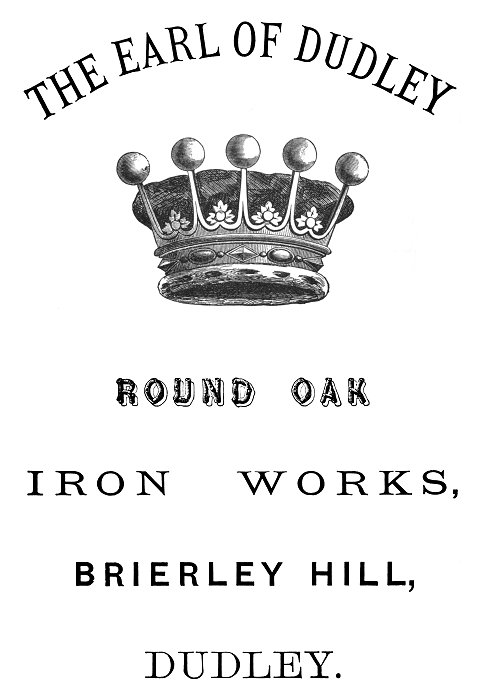
From Griffiths Guide to the
Iron Trade of Great Britain. |
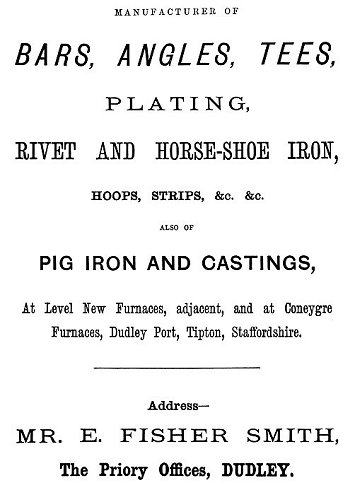 |
|
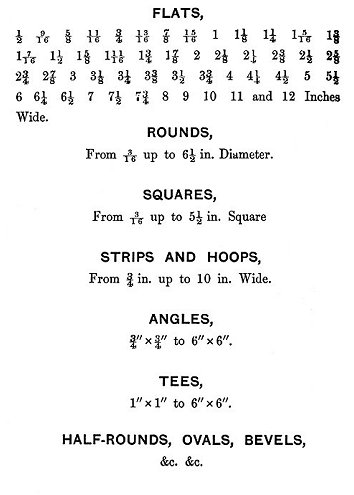 |
|
From Griffiths Guide to the
Iron Trade of Great Britain. |
|
|
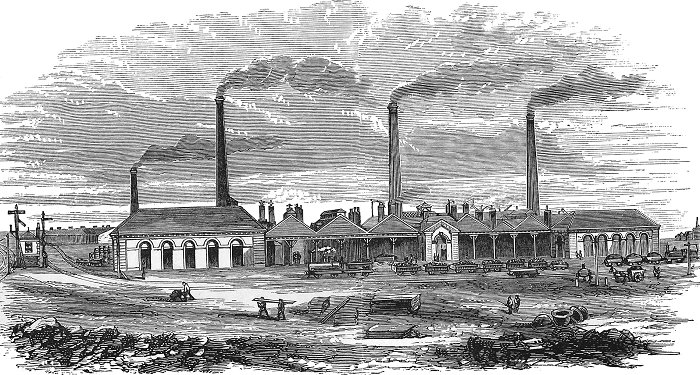
Round Oak
Ironworks. |
|
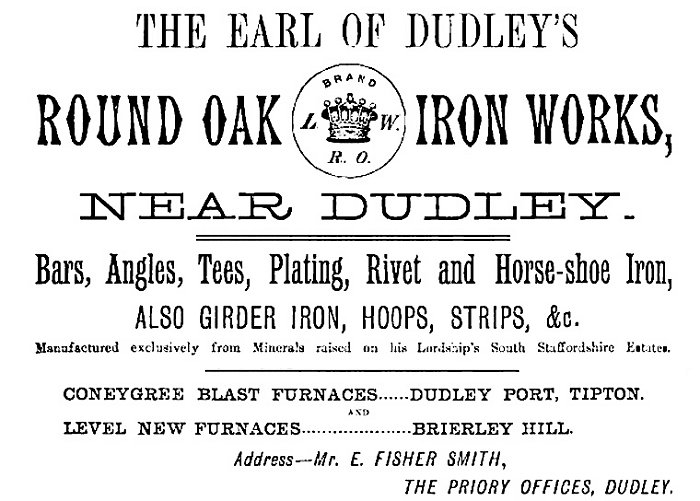
An
advert from 1882. |
|
| Construction of the steel works
began in 1893. The plant included
three 17ton open-hearth furnaces,
two reversing rolling mill engines,
two 2-cylinder engines for a 32inch
cogging mill and a 27inch roughing
mill and hot bloom shears.
The chairman of was Mr. Richard
Dalgleish and the managing director
was Mr. R. Smith Casson. Production
began in August 1894, but the
venture ran into financial
difficulties and went into
liquidation on the 26th November,
1894.
The Dudley estate then founded a
new company, The Earl of Dudley's
Round Oak Works Limited,
incorporated on the 15th July, 1897.
The 2nd Earl of Dudley became
Chairman of the new company and the
managing director was George Hatton.
By 1904 the steel works had five
large open-hearth steel melting
furnaces, standing in a shop 350ft.
long by 90ft. wide.
The business was very successful
until the depression after the end
of the First World War, when the
company had great financial
difficulties. Viscount Ednam
appointed a new board of directors
who greatly improved the company’s
situation. In 1927, George Hatton,
became Managing Director and on the
14th December, 1936 the company
became Round Oak Steel Works
Limited.
After the Second World War, £4
million was spent on new plant. In
1951 the the factory was
nationalised under the Iron and
Steel Act and became part of the
Iron and Steel Corporation of Great
Britain. In 1953 the factory was
sold by the Holding and Realisation
Agency to Tube Investments for £1.6
million. Tube Investments agreed to
repay loans totalling £4.2million,
and its chairman, Ivan Stedeford,
took over as chairman at Round Oak.
Products included alloy and carbon
steel bars, railway bearing plates,
slabs and large forging ingots,
special sections, rounds, squares,
flats, angles, channels, joists,
billets, blooms, and a weldable
extra high-strength steel under the
brand name, 'Thirty-Oak'. |
|
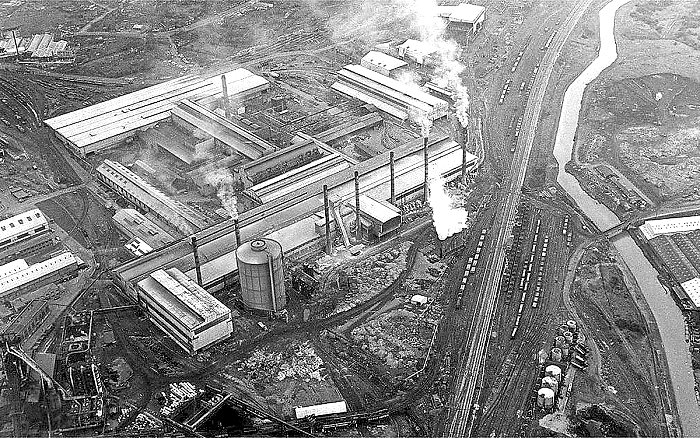
Round Oak
Steel Works from a newspaper
cutting from an unknown
newspaper. |
|
The
steelworks was the first in the
country to be converted to
natural gas, supplied from the
North Sea. In 1967 the firm was
re-nationalised and became part
of the British Steel
Corporation. It was a greed that
Tube Investments would share the
management of the Round Oak
Steel Works and the company
invested in a new mill to
replace open hearth furnaces and
finishing plants.
By the 1970s there was a fall
in demand for the company’s
products and the workforce was
reduced from 3,000 to around
1,200. Things didn’t improve and
on the 23rd December, 1982 the
factory closed, with a loss of
1,286 jobs. The factory was
demolished in 1984, to make way
for the Merry Hill Shopping
Centre. |
 |
Return to the
previous page |
|